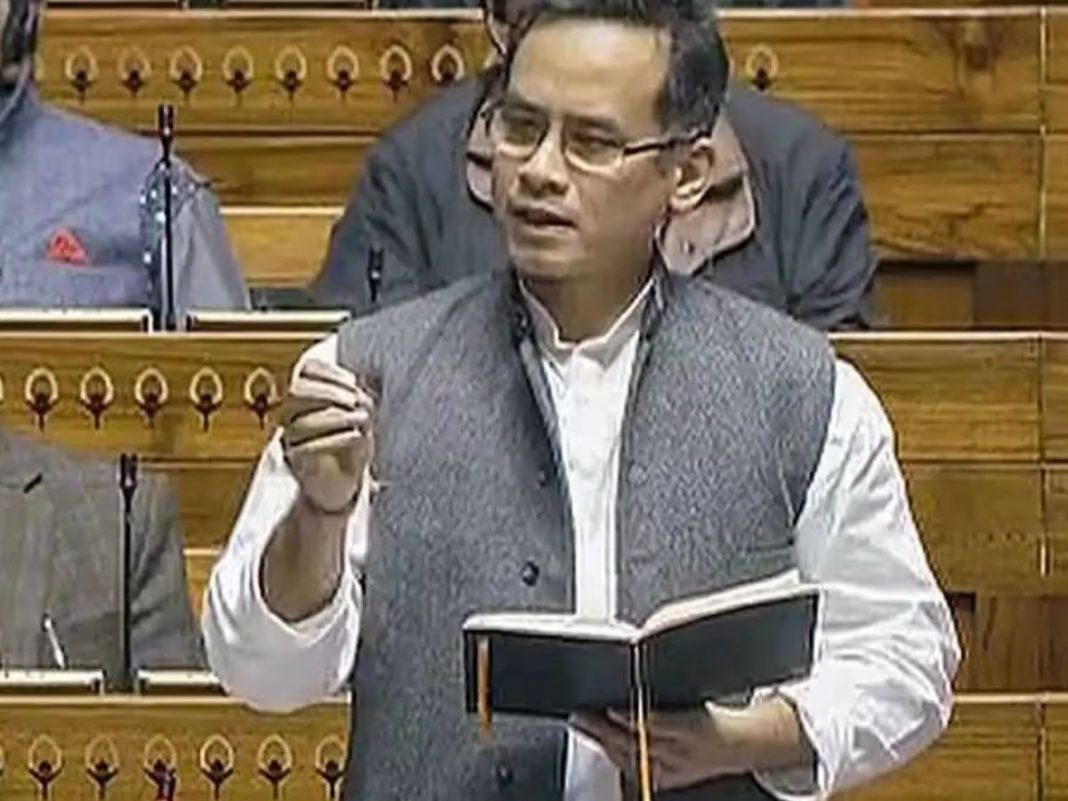Gogoi alleges paper ballots provided accurate results during voting on ‘One Nation, One Election’ Bill; reiterates concerns over its impact on India’s federal structure
New Delhi, December 18: Congress MP Gaurav Gogoi took a swipe at the Bharatiya Janata Party (BJP), raising questions about the reliability of electronic voting in the Lok Sabha during the introduction of the ‘One Nation, One Election’ Bill. Gogoi alleged that the electronic voting system malfunctioned, and the final tally was derived using paper ballots.
In a post on X, Gogoi remarked,
“Funnily enough, while voting on the introduction of the 129th Constitution Amendment Bill, the electronic voting in Parliament failed. Many votes were not counted. It was the paper vote which reflected the accurate tally at the end.”
Opposition to ‘One Nation, One Election’ Bill
Gogoi reiterated his opposition to the bill, voicing concerns about its potential to weaken India’s federal structure.
“To save 0.02 per cent expenditure of the annual budget, the government wants to end the entire federal structure of India and give more power to the Election Commission of India (ECI),” he said, stressing that the move undermines state autonomy.
Lok Sabha Vote Outcome
The bill was formally introduced in the Lok Sabha on Tuesday after a vote tally of 269 members in favor (Ayes) and 196 against (Noes). The bill, introduced by Union Law Minister Arjun Ram Meghwal, will now be referred to a Joint Parliamentary Committee (JPC) for detailed deliberations.
Union Home Minister Amit Shah highlighted that Prime Minister Narendra Modi had recommended sending the bill to the JPC for thorough discussion. Shah remarked,
“If the Law Minister is willing to send the bill to the JPC, the discussion on its introduction can end.”
Amendments to Related Laws
In addition to the ‘One Nation, One Election’ Bill, Meghwal introduced amendments to several laws, including:
- Government of Union Territories Act, 1963
- Government of National Capital Territory of Delhi Act, 1991
- Jammu and Kashmir Reorganisation Act, 2019
These amendments aim to synchronize assembly elections in Delhi, Jammu and Kashmir, and Puducherry with the proposed simultaneous elections.

